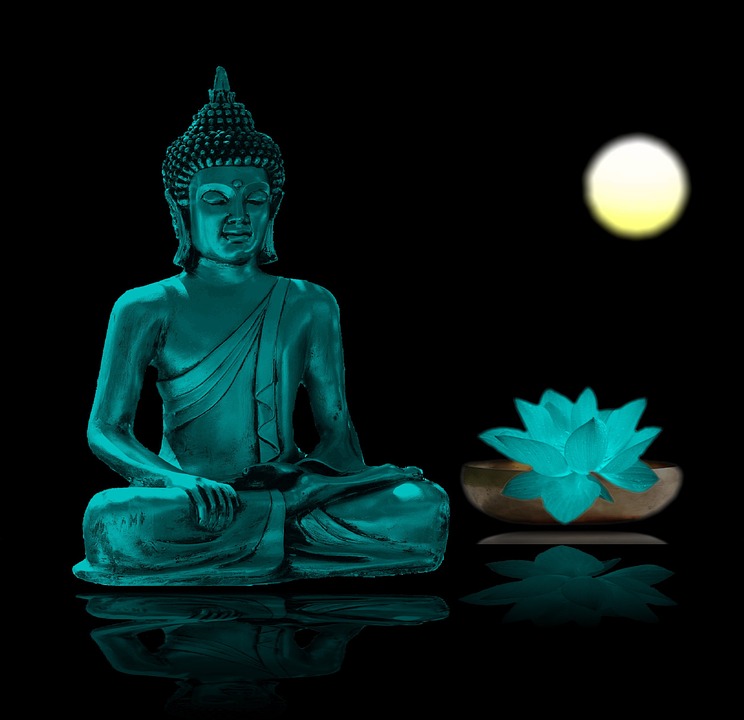One of the things I’m often asked is for the specifics of Buddhism and I often receive a shocked look when I don’t have an immediate answer. I usually try to explain to the person inquiring that I don’t necessarily know EVERYTHING about Buddhism, which is why I usually refer to it as a “study” as opposed to a “religion.” There’s always something new to learn and the same can be said of any faith or school of thought. And like any similar faith, there are different types and sects that accompany them.
To be honest, I don’t really want to get into all the different types of Buddhism as it can get pretty convoluted and including all the pertinent details will make this post WAY longer than it genuinely needs to be. Besides, I covered the different sects of Buddhism and you can read all about it here. But what I can say is that Zen Buddhism as I study it, originates from a Chinese form of Zen known as Ch’an. This was a form of Mahayana Buddhism that made its way to China sometime in the 6th century from India, which is where the roots of Buddhism originate from.

Zen made its way to Japan a couple of centuries later (or up to six centuries later, depending on your information source) and the term “Zen” is a Japanese pronunciation of the Chinese word for “meditation,” which is the main bullet point behind what Zen Buddhism is all about. Many scholars and information sources will describe Zen as a stripped-down version of Buddhism, devoid of scripture or official, set practices. Although this is true to an extent, Zen does prescribe to certain things like the Four Noble Truths and The noble Eightfold Path.
Zen owes its beginnings to a rich soup bowl of philosophies and doctrines, including some influence from Taoism and Confucianism, especially due to its development in China. But Zen does focus primarily on the balancing of oneself through the practice of meditation in order to attain enlightenment. I’m still working on it, by the way. But control of one’s self, including restraint, discipline and the contemplation of life and its nature are all integral components to the Zen way of being. I think that this is often one of the reasons why Buddhism holds the attention of people in the Western world; because they think it’s all sitting and meditation. They’re not ENTIRELY wrong…
At the end of the day, I consider Zen to be a path towards bettering myself and finding some modicum of peace in an otherwise chaotic world. The success of that peace depends on the willingness to put in the time and effort and you may be surprised to learn that Zen incorporates certain practices such as exercising, waking up early and practicing a consistent norm of meditation, which is not always easy in the modern, family dynamic. I like to think that I’ve become pretty proficient at meditation in the past twenty years, but have you ever tried to centre yourself and fall into a deep meditation with your 6-year old breathing into your ear? Not so easy. ☯

Reading this was just lovely 🙂
LikeLiked by 1 person
Good post. I’ve read books, but know a good deal less than you on this topic I’m sure. None the less, I know enough to know asking “what is it” is like asking “what is Christianity?”. Uhm, how many years do you have? LOL.
It’s a shame people have been conditioned to expect dumbed down, simplistic answers to everything in life.
LikeLiked by 1 person
And it’s really an odd, consistent phenomenon… It’s always a vague, open-ended question like, “Tell me about it…,” “What is it?” or “What does Buddhism mean?”
LikeLiked by 1 person
Look at the bright side, they’re curious and want to understand. That’s worlds better than judging and condemning.
LikeLiked by 1 person
Zen Buddhism resonates with my constitution. Never had children breathing in my ear while meditating but kittens are great to have around while doing so. I am very grateful to have you as a dependable source of Buddhist knowledge. It’s nothing like the dharma to release us from stagnation eh.
LikeLiked by 1 person
Ah yes, the ever-consistent cats who ignore a person all day and then very much decide they need cuddle RIGHT when you’ve started meditating. Been there lol.
LikeLiked by 1 person
Ha ha! But they also help to quite children too.
LikeLike
No doubt!
LikeLiked by 1 person